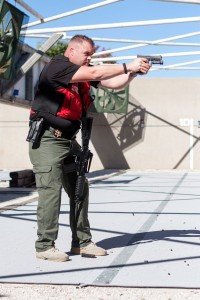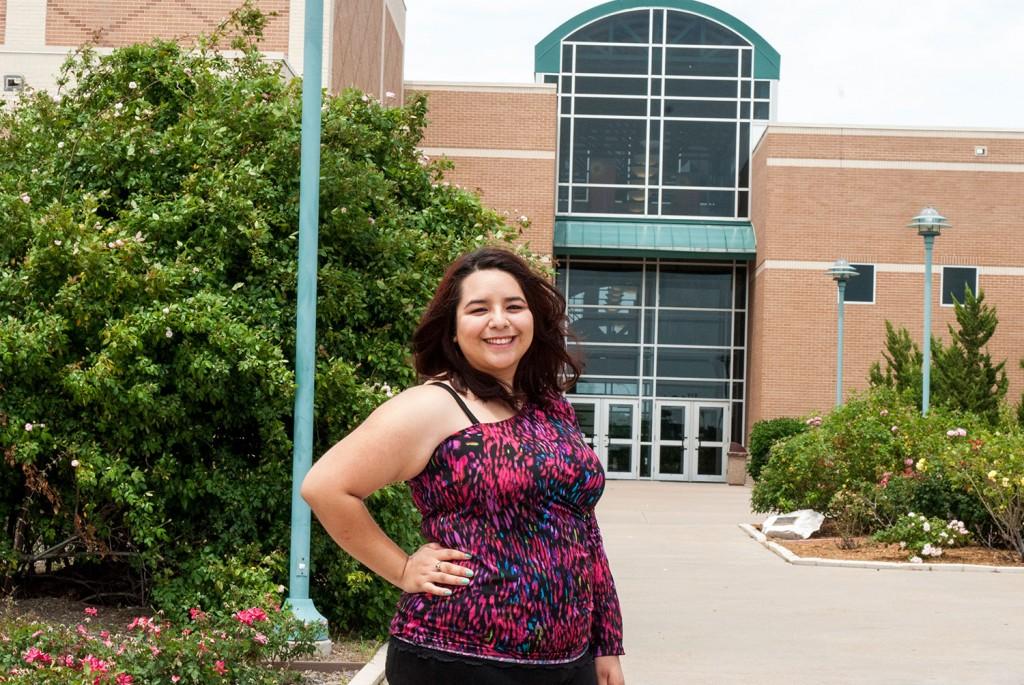By Taylor Jensen/nw news editor
NW Campus will soon break ground on a new indoor firing range that will eliminate sound pollution and enhance training scenarios.
The facility has been estimated to take eight to nine months to complete and will be located north of the aviation building, said range master Adam Bush.
It will prove both a better training environment for the academy and a quieter atmosphere for NW students, he said.

Carrie Duke/The Collegian
“There will no longer be sound pollution echoing through the campus in the form of gunfire,” Bush said. “It will be a highly secure indoor police training facility with 15 lanes at 50 yards and five lanes at 100 yards.”
Cadet classes at the academy as well as police agencies in Tarrant County that use the facility will no longer be restricted in the way they train, Bush said.
“The way it will be constructed will allow us to change up our training scenarios for more realistic training,” he said.
Malcolm Jackson, coordinator of the criminal justice training center, said the new range would provide a number of advantages.
“Our program had reached capacity with our existing range,” Jackson said. “The existing facility also remains weather-dependent.”
The new indoor range means that people can train even on rainy or bitter cold days, Jackson said.
It also allows users to simulate nighttime or low-light conditions at any hour of the day or night.
“The advantage of the separate 100-yard range opens up opportunities for rifle-related training since our current range is limited to 50 yards,” he said. “Essentially, we can conduct more programs under a higher degree of safety.”
Divisional dean Arrick Jackson said the range would also assist with increasing safety for the citizens of Tarrant County.
“The design of the new range includes current classroom and firing range technology and outstanding adjacent training rooms, such as an armorer and weapons repair room,” he said. “Ultimately, the goal of our new range is to continue providing a safe and dynamic fire-arms curriculum that ensures that officers in the state of Texas are well-trained and prepared to respond to the needs of the communities in which they serve.”


























